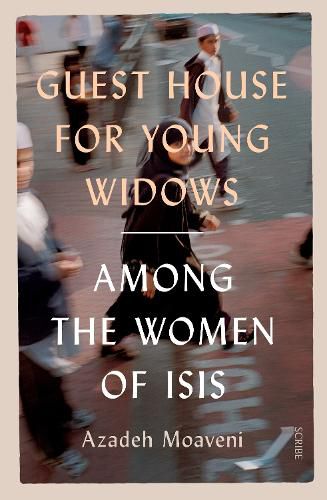Readings Newsletter
Become a Readings Member to make your shopping experience even easier.
Sign in or sign up for free!
You’re not far away from qualifying for FREE standard shipping within Australia
You’ve qualified for FREE standard shipping within Australia
The cart is loading…






In early 2014, the Islamic State clinched its control of Raqqa in Syria. Baghdadi, the leader of ISIS, urged Muslims around the world to come join the caliphate. Having witnessed the brutal oppression of the Assad regime in Syria, and moved to fight for justice, thousands of men and women heeded his call.
At the heart of this story is a cast of unforgettable young women who responded. Emma, from Germany; Sharmeena from Bethnal Green, London; Nour from Tunis: these were women - some still in high school - from urban families, some with university degrees and bookshelves filled with novels by Jane Austen and Dan Brown; many with cosmopolitan dreams of travel and adventure. But instead of finding a land of justice and piety, they found themselves trapped within the most brutal terrorist regime of the twenty-first century, a world of chaos and upheaval and violence.
What is the line between victim and collaborator? How do we judge these women who both suffered and inflicted intense pain? What role is there for Muslim women in the West? In what is bound to be a modern classic of narrative non-fiction, Moaveni takes us into the school hallways of London, kitchen tables in Germany, the coffee shops in Tunis, the caliphate’s OB/GYN and its ‘Guest House for Young Widows’ - where wives of the fallen waited to be remarried - to demonstrate that the problem called terrorism is a far more complex, political, and deeply relatable one than we generally admit.
$9.00 standard shipping within Australia
FREE standard shipping within Australia for orders over $100.00
Express & International shipping calculated at checkout
In early 2014, the Islamic State clinched its control of Raqqa in Syria. Baghdadi, the leader of ISIS, urged Muslims around the world to come join the caliphate. Having witnessed the brutal oppression of the Assad regime in Syria, and moved to fight for justice, thousands of men and women heeded his call.
At the heart of this story is a cast of unforgettable young women who responded. Emma, from Germany; Sharmeena from Bethnal Green, London; Nour from Tunis: these were women - some still in high school - from urban families, some with university degrees and bookshelves filled with novels by Jane Austen and Dan Brown; many with cosmopolitan dreams of travel and adventure. But instead of finding a land of justice and piety, they found themselves trapped within the most brutal terrorist regime of the twenty-first century, a world of chaos and upheaval and violence.
What is the line between victim and collaborator? How do we judge these women who both suffered and inflicted intense pain? What role is there for Muslim women in the West? In what is bound to be a modern classic of narrative non-fiction, Moaveni takes us into the school hallways of London, kitchen tables in Germany, the coffee shops in Tunis, the caliphate’s OB/GYN and its ‘Guest House for Young Widows’ - where wives of the fallen waited to be remarried - to demonstrate that the problem called terrorism is a far more complex, political, and deeply relatable one than we generally admit.
What might make a woman – perhaps an educated woman from a stable family situation – travel to Syria to join the Islamic State? This is the foundational question of the brilliantly provocative and genuinely eye-opening Guest House for Young Widows. This book follows the stories of thirteen women and girls who travelled from abroad to join ISIS. These women’s stories are told not as exemplars of a type, but rather as the unique experiences of individuals whose circumstances differ and whose motivations are personal and particular; however, they find their ways to a common destination. We discover that these women are all seeking a form of belonging to alleviate a deep sense of disenfranchisement, and their attempts to locate that feeling and that community come at a huge cost. This book does not deal in dichotomies like right and wrong, victim and perpetrator, good and evil, but rather dwells in the uncomfortable inbetween spaces that produce the everyday lives of real people. It’s a humane project which generates understanding about those drawn to a conflict whose enormity and complexity deems it almost incomprehensible to those of us living an existence of relative safety.
Author Azadeh Moaveni has been writing about and reporting on life and politics in the Middle East for twenty years, and her expertise really shines in this book. Moaveni offers crucial historical context throughout the book, as well as a sense of what daily life is like amidst its instability. She also gives biting critiques of US and European foreign policy, the failure of dominant feminist discourse to engage adequately with the lives of Muslim women, the poor attempts by Western governments to ‘manage’ radicalisation, and the shocking prejudices of media reporting about Muslim communities, as well as exploring the nuances and varieties of Islamic faith. It is truly fascinating as well as being an incredibly well-written work of narrative nonfiction, and is a highlight of my 2019 reading year.
See what the Readings’ team have to say on the blog, discover related events and podcast episodes.